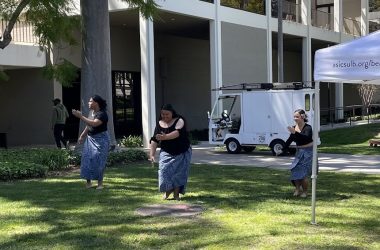After voting on their recommendation, the SFAC formed a subcommittee to consider possible regulations for future student fee referendums.
“While there were only frivolous complaints in this recent referendum, the SFAC needs to do what it can to assure a fair election so real issues do not manifest in future referendums,” wrote Brian Troutner, who is the ASI treasurer and the SFAC member who suggested the need for a subcommittee.
Approximately 6,500 students — or 18 percent of the total student population — voted in the Beach Legacy Referendum, which is an unprecedented level of voter involvement at CSULB.
“6,500 students have never voted on any one initiative on this campus — ever,” said Doug Robinson, vice president of student services and the SFAC committee chair.
While there are regulations in place for ASI elections, there are no set regulations for student fee referendums.
Robinson said the main reasons for this are the difficulties of enforcing regulations in online voting, where any computer is a polling place, and the fact that there are not any actual candidates in referendum votes.
“You don’t have candidates you can disqualify,” Robinson said.
“If I’m a candidate and you’re a candidate, you’re monitoring my behavior and I’m monitoring your behavior,” Robinson said. “The personal behaviors of the candidates are under the microscope,” in ASI elections.
In ASI elections, candidates are prohibited from campaigning around students who are voting or are about to vote.
The committee discussed the “voting parties” that took place during the Beach Legacy Referendum.
During the referendum, the Athletics Department made computers available and gave students free food in the Walter Pyramid, and Robinson said that he had heard reports of off-campus voting parties.
“I want to make sure people aren’t monopolizing people’s votes,” said Christopher Chavez, vice president of ASI and SFAC member.
Robinson encouraged the members who volunteered for the subcommittee to, when considering possible regulations, “Think in terms of how those regulations are going to be enforced.”
Pat Kearney, who is the chair of the University Resources Council and an SFAC member, said that “There’s no way to regulate ethical behavior,” and commented that course curriculums should encourage ethical behavior more vigorously.
ASI presidential candidates discussed the Beach Legacy Referendum process in recent interviews with Beach News. Click here to watch the video.
Related story: Online referendum lacked regulation



